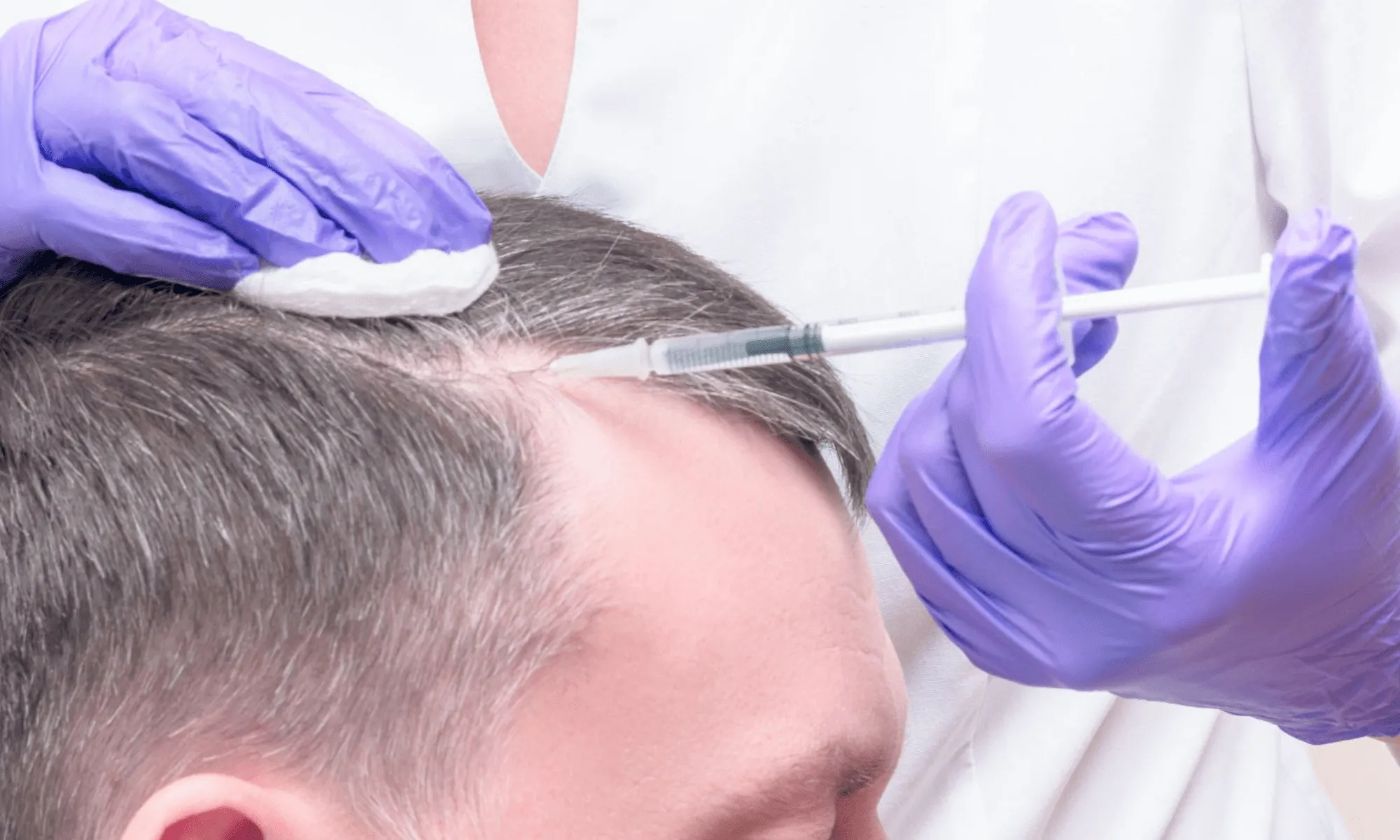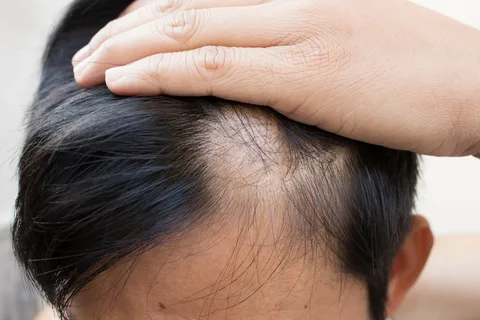Experiencing hair loss can be distressing, especially when the cause is unclear. If you're wondering, “How do you get tested for alopecia?”, understanding the diagnostic process is the first step toward effective treatment. At Dr. Uzma Irfan’s Hair Transplant Clinic in Islamabad, Dr. Uzma Irfan, a board-certified hair restoration specialist, offers comprehensive evaluations to determine …
Experiencing hair loss can be distressing, especially when the cause is unclear. If you’re wondering, “How do you get tested for alopecia?”, understanding the diagnostic process is the first step toward effective treatment. At Dr. Uzma Irfan’s Hair Transplant Clinic in Islamabad, Dr. Uzma Irfan, a board-certified hair restoration specialist, offers comprehensive evaluations to determine the underlying cause of your hair loss.
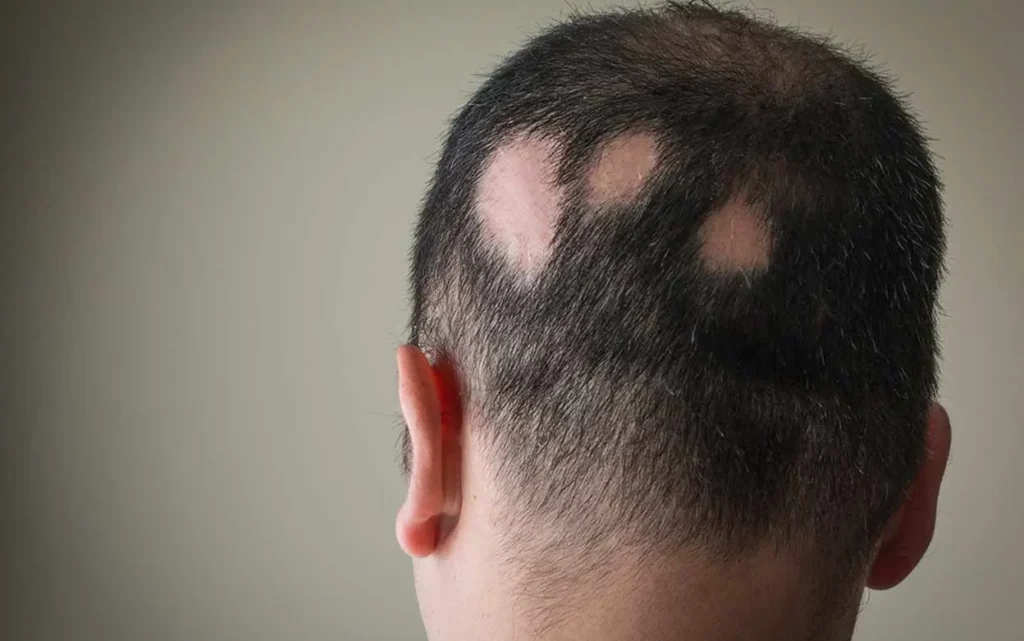
Understanding Alopecia and Its Causes
Alopecia refers to hair loss from the scalp or other areas of the body. It can result from various factors, including:
- Genetics: Hereditary conditions like male and female pattern baldness.
- Autoimmune Disorders: Conditions such as alopecia areata, where the immune system attacks hair follicles.
- Hormonal Changes: Pregnancy, childbirth, menopause, or thyroid problems.
- Medical Conditions: Diseases like lupus and diabetes.
- Medications: Drugs used for cancer, arthritis, depression, heart problems, gout, and high blood pressure.
- Stress: Significant physical or emotional stress can trigger temporary hair loss.
- Poor Diet: Lack of proper nutrition can lead to thinning hair.
Diagnostic Methods for Alopecia
To accurately diagnose alopecia, Dr. Uzma Irfan employs a combination of clinical evaluations and specialized tests:

1. Medical History and Physical Examination
A thorough medical history helps identify potential causes of hair loss, such as underlying health conditions or recent life events. A physical examination assesses the pattern and extent of hair loss.
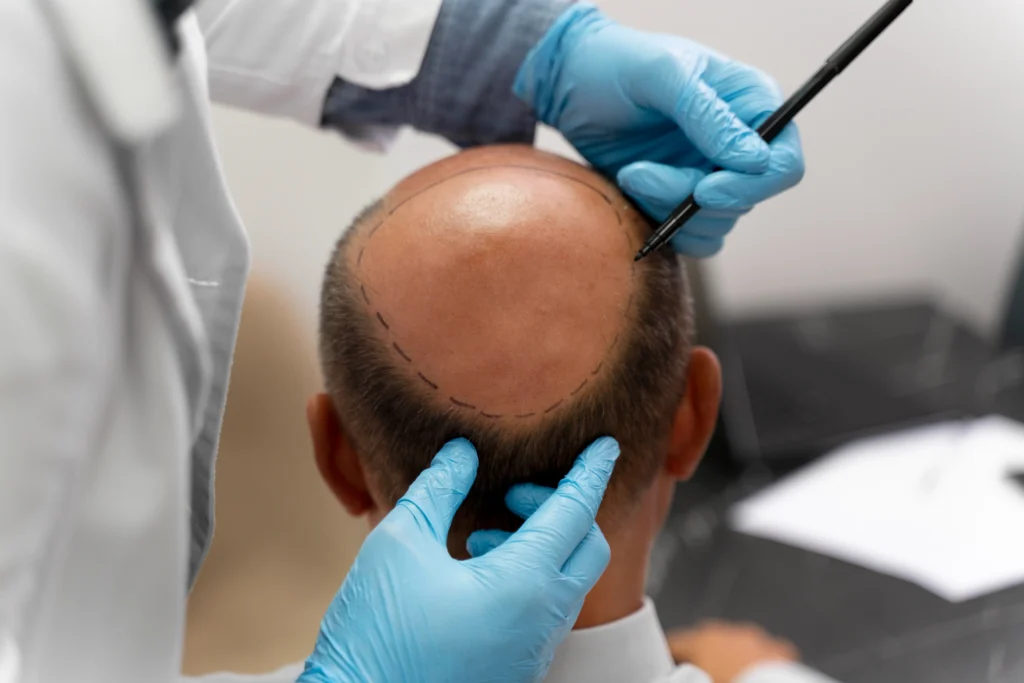
2. Hair Pull Test
This non-invasive test involves gently pulling a small section of hair to determine the shedding rate. A significant number of hairs pulled out may indicate active hair loss, such as in telogen effluvium or alopecia areata.
Sources: Onlymyhealth, Healthline

3. Trichoscopy (Scalp Microscopy)
Trichoscopy uses a dermatoscope to examine the scalp and hair follicles at high magnification. This method helps differentiate between scarring and non-scarring alopecia and can identify specific patterns associated with various types of hair loss.
Sources: DermNet®, Onlymyhealth
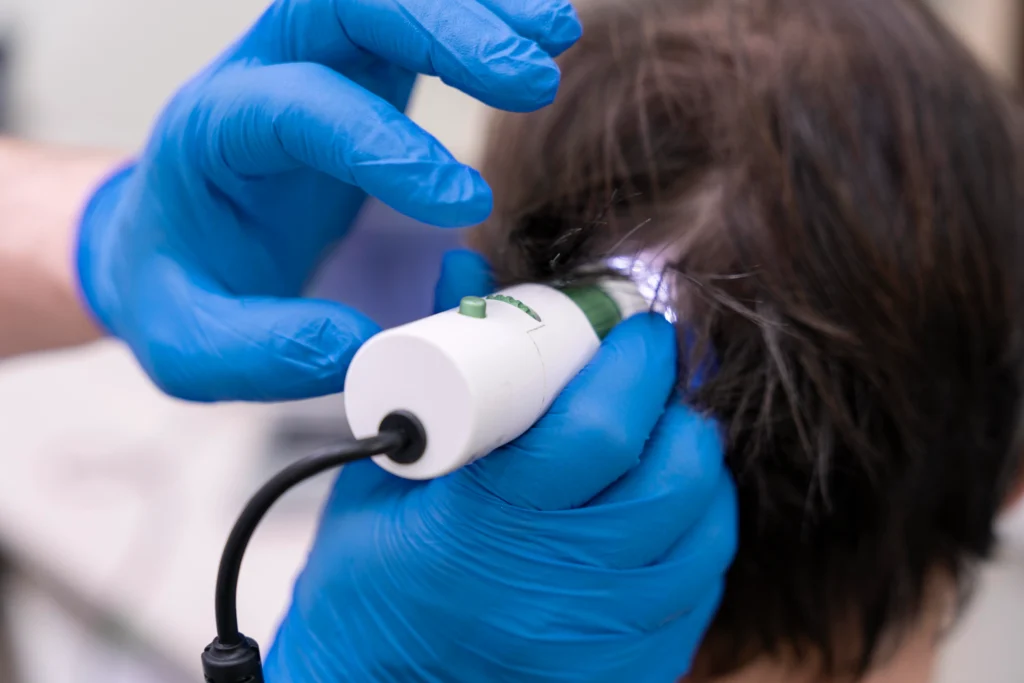
4. Scalp Biopsy
In certain cases, a small sample of scalp tissue is removed and examined under a microscope. This procedure helps diagnose conditions like cicatricial alopecia (scarring hair loss) and can provide insights into the inflammatory processes affecting the hair follicles.
Source: Onlymyhealth
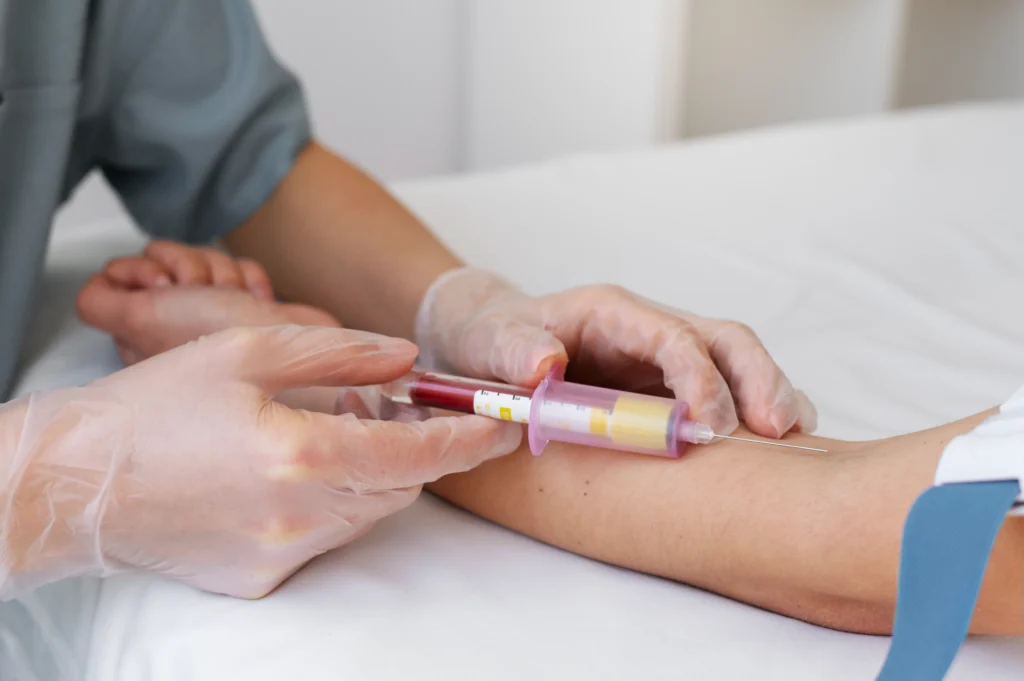
5. Blood Tests
Blood tests can identify underlying medical conditions contributing to hair loss, such as thyroid disorders, iron deficiency, or autoimmune diseases.
Why Choose Dr. Uzma Irfan
Dr. Uzma Irfan is a board-certified hair restoration specialist with extensive experience in diagnosing and treating various forms of alopecia. At Dr. Uzma Irfan’s Hair Transplant Clinic in Islamabad, she utilizes state-of-the-art diagnostic tools and personalized treatment plans to address the unique needs of each patient.
What to Expect During Your Consultation
During your consultation with Dr. Uzma Irfan, you can expect:
- Comprehensive Assessment: A detailed review of your medical history and lifestyle factors.
- Personalized Diagnostic Plan: Utilization of appropriate tests to determine the cause of hair loss.
- Treatment Discussion: Exploration of potential treatment options tailored to your condition.
Book Your Appointment with Dr. Uzma Irfan
If you’re experiencing hair loss and seeking a professional evaluation, schedule a consultation with Dr. Uzma Irfan at Dr. Uzma Irfan’s Hair Transplant Clinic in Islamabad. Take the first step toward understanding your condition and exploring effective treatment options.
Frequently Asked Questions (FAQ)
Q: How can I prepare for my alopecia consultation?
A: It’s advisable to avoid washing your hair for at least 24 hours before the appointment to ensure accurate results during diagnostic tests.
Q: Are the diagnostic tests for alopecia painful?
A: Most diagnostic tests are non-invasive and cause minimal discomfort. Dr. Uzma Irfan will ensure your comfort throughout the process.
Q: How long does it take to receive the results of diagnostic tests?
A: The time frame varies depending on the specific tests conducted. Dr. Uzma Irfan will provide an estimated timeline during your consultation.
Final Thoughts
Hair loss can be emotionally and physically challenging, especially when the cause is unknown. Getting properly tested for alopecia is the first, most important step in taking control of your hair health. At Dr. Uzma Irfan’s Hair Transplant Clinic in Islamabad, patients receive compassionate, evidence-based care from a board-certified specialist who prioritizes accurate diagnosis and ethical treatment planning.
If you’re concerned about hair thinning or bald patches, don’t delay seeking help. A thorough consultation and diagnostic workup with Dr. Uzma Irfan can provide the clarity and confidence you need to move forward with the right solution.




